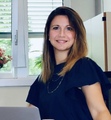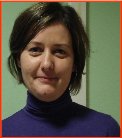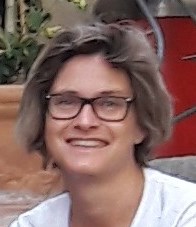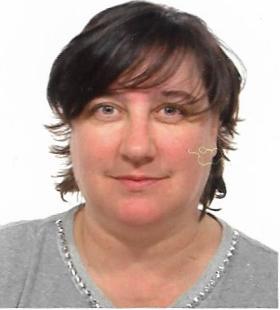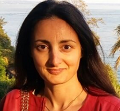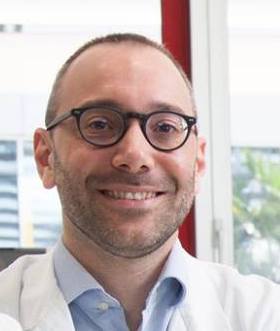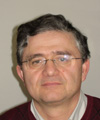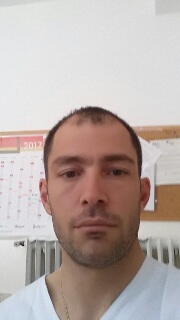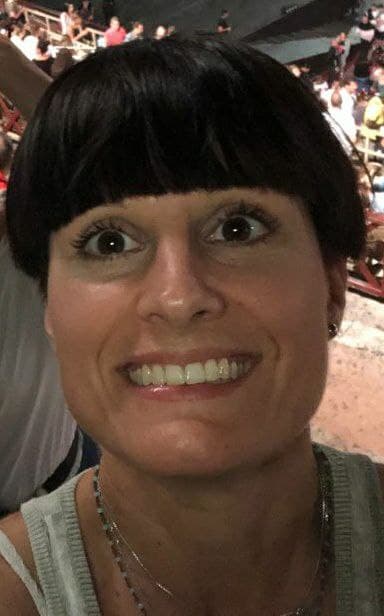Studying at the University of Verona
Here you can find information on the organisational aspects of the Programme, lecture timetables, learning activities and useful contact details for your time at the University, from enrolment to graduation.
Academic calendar
The academic calendar shows the deadlines and scheduled events that are relevant to students, teaching and technical-administrative staff of the University. Public holidays and University closures are also indicated. The academic year normally begins on 1 October each year and ends on 30 September of the following year.
Course calendar
The Academic Calendar sets out the degree programme lecture and exam timetables, as well as the relevant university closure dates..
| Period | From | To |
|---|---|---|
| FISIO VI 2A1S | Oct 1, 2019 | Nov 22, 2019 |
| FISIO VI 3A1S | Oct 1, 2019 | Nov 15, 2019 |
| FISIO VI 1A1S | Oct 14, 2019 | Dec 20, 2019 |
| FISIO VI 3A2S | Mar 2, 2020 | Apr 17, 2020 |
| FISIO VI 1A2S | Mar 2, 2020 | May 15, 2020 |
| FISIO VI 2A2S | Mar 2, 2020 | Apr 30, 2020 |
| Session | From | To |
|---|---|---|
| FISIO VI SESSIONE INVERNALE | Jan 7, 2020 | Jan 31, 2020 |
| FISIO VI SESSIONE ESTIVA | Jul 6, 2020 | Jul 31, 2020 |
| FISIO VI SESSIONE AUTUNNALE | Sep 1, 2020 | Sep 30, 2020 |
| Session | From | To |
|---|---|---|
| FISIO VI SESSIONE AUTUNNALE | Nov 1, 2020 | Dec 22, 2020 |
| FISIO VI SESSIONE PRIMAVERILE | Mar 1, 2021 | Apr 30, 2021 |
| Period | From | To |
|---|---|---|
| FESTIVITA' OGNISSANTI | Nov 1, 2019 | Nov 1, 2019 |
| FESTIVITA' IMMACOLATA CONCEZIONE | Dec 8, 2019 | Dec 8, 2019 |
| Vacanze di Natale | Dec 24, 2019 | Jan 6, 2020 |
| VACANZE DI PASQUA | Apr 10, 2020 | Apr 15, 2020 |
| FESTA DELLA LIBERAZIONE | Apr 25, 2020 | Apr 25, 2020 |
| Festa del Lavoro | May 1, 2020 | May 1, 2020 |
| FESTA DELLA REPUBBLICA | Jun 2, 2020 | Jun 2, 2020 |
| FESTA S. PATRONO VICENZA | Sep 8, 2020 | Sep 8, 2020 |
| Description | Period | From | To |
|---|---|---|---|
| FISIO VI 3^ anno - 1^semestre (1 periodo) | FISIO VI 3^ anno - 1^semestre (1 periodo) | Nov 18, 2019 | Dec 20, 2019 |
| FISIO VI 2^ anno - 1^semestre (1 periodo) | FISIO VI 2^ anno - 1^semestre (1 periodo) | Nov 25, 2019 | Dec 20, 2019 |
| FISIO VI 2^ anno - 1^semestre (2 periodo) | FISIO VI 2^ anno - 1^semestre (2 periodo) | Feb 3, 2020 | Feb 28, 2020 |
| FISIO VI 3^ anno - 1^semestre (2 periodo) | FISIO VI 3^ anno - 1^semestre (2 periodo) | Feb 3, 2020 | Feb 28, 2020 |
| FISIO VI 1^ anno - 1^semestre | FISIO VI 1^ anno - 1^semestre | Feb 3, 2020 | Feb 28, 2020 |
| FISIO VI 3^ anno - 2^semestre | FISIO VI 3^ anno - 2^semestre | Apr 20, 2020 | Jun 26, 2020 |
| FISIO VI 2^ anno - 2^semestre | FISIO VI 2^ anno - 2^semestre | May 4, 2020 | Jun 26, 2020 |
| FISIO VI 1^ anno - 2^semestre | FISIO VI 1^ anno - 2^semestre | May 18, 2020 | Jun 26, 2020 |
Exam calendar
Exam dates and rounds are managed by the relevant Medicine Teaching and Student Services Unit.
To view all the exam sessions available, please use the Exam dashboard on ESSE3.
If you forgot your login details or have problems logging in, please contact the relevant IT HelpDesk, or check the login details recovery web page.
Should you have any doubts or questions, please check the Enrollment FAQs
Academic staff
 michele.bertani@univr.it
michele.bertani@univr.it
 davideconte.bioeng@gmail.com
davideconte.bioeng@gmail.com
Cunico Laura
 laura.cunico@univr.it
laura.cunico@univr.it
 giada.goracci@univr.it
giada.goracci@univr.it
Pighi Michele
 michele.pighi@univr.it
michele.pighi@univr.it
 0458122320
0458122320
Study Plan
The Study Plan includes all modules, teaching and learning activities that each student will need to undertake during their time at the University.
Please select your Study Plan based on your enrollment year.
1° Year
| Modules | Credits | TAF | SSD |
|---|
2° Year activated in the A.Y. 2020/2021
| Modules | Credits | TAF | SSD |
|---|
3° Year activated in the A.Y. 2021/2022
| Modules | Credits | TAF | SSD |
|---|
Fisioterapia in eta' evolutiva| Modules | Credits | TAF | SSD |
|---|
| Modules | Credits | TAF | SSD |
|---|
| Modules | Credits | TAF | SSD |
|---|
Fisioterapia in eta' evolutivaLegend | Type of training activity (TTA)
TAF (Type of Educational Activity) All courses and activities are classified into different types of educational activities, indicated by a letter.
Clinical practice (2nd year) (2020/2021)
Teaching code
4S01546
Teacher
Not yet assigned
Credits
20
Language
Italian
Scientific Disciplinary Sector (SSD)
MED/48 - NURSING IN NEUROPSYCHIATRY AND REHABILITATION
Period
FISIO VI 2^ anno - 1^semestre, FISIO VI 2^ anno - 2^semestre
Learning outcomes
PREREQUISITES Attendance at the Professional Laboratory, Exercises, Simulations and Tutorial Sessions in preparation for the experience. METHODOLOGY Support to an expert health-care professional (Internship Guide /Internship Supervisor) in specific health contexts with a ratio of 1/1 or 1/2, completion of teaching Tasks. SETTING Experiences in musculoskeletal, orthopedic and neurological fields. AREAS OF COMPETENCE At the end of the internship activities the Student acquires skills in the following areas. In the field of Professional Responsibility, he/she demonstrates the ability to apply knowledge and understanding as he acts according to the principles of ethics and professional ethics. Demonstrate attention and respect for different ideas, opinions and cultures and make no judgments. Respect confidentiality in the processing of the data of the assisted person. The Student demonstrates autonomy of judgment as he acts within the limits of his own competence and experience. The student demonstrates a collaborative and purposeful attitude recognizing the limits of his/her role. The student identifies new and complex situations for which it has no competence cooperating with colleagues before acting with the GT. As part of Management and Organization (Management), the student demonstrates ability to apply knowledge and understanding as he/she identifies the elements of the organization in which he/she operates. The student recognizes the roles of the various team members. He/she takes care of his/her own person and uniform and keeps the working environment in order. He/she works to deadlines and respects the assigned mandates and communicates his/her absences. In relation to the objectives to be achieved and in respect of the context in which he/she works, the student organizes his/her own training day with the GT supervision. In the area of training/self-training, he/she demonstrates learning skills as he/she identifies his/her own individual learning needs and shares them with the GT. He/she is able to self-assess himself/herself to identify the level of knowledge and skills acquired. The student acts autonomously keeping himself/herself informed. Search for learning opportunities consistent with the objectives of the internship. The student cooperates with the GT and, in relation to the feedback he/she receives, he/she is able to adapt his/her behaviour. As part of the Effectiveness Based Practice (EBP), the student demonstrates ability to apply knowledge and understanding as, starting from a specific clinical problem emerged in the internship, he/she is able to formulate a structured question and answer it. The student then researches and selects evidence through the consultation of appropriate databases and autonomy of judgment in using evidence for the assessment of the assisted person and to plan a physiotherapy treatment. In the area of Communication and Relationship, the student has communication skills in that he/she communicates in a professional manner with the patient or the caregivers/colleagues, using empathetic attitudes and active listening. The student uses a specific terminology in relation to the interlocutor, modulating the rhythm (turn-taking) and the timing of communication and he/she manages coherently verbal and non-verbal levels of communication. The student is able to facilitate the involvement of the assisted person in the Care and Rehabilitation activities by providing all necessary information clearly and comprehensively and verifying their understanding. The student communicates with the GT using scientific terminology when describing what is observed, answers a question or shares a topic with a multi-professional team. The student demonstrates relational and collaborative skills with GT and other professional figures in respect of roles. The Student charts his/her physiotherapy portfolio by completing the required course tasks. In the field of Care and Rehabilitation, the student has the ability to apply knowledge, understanding and autonomy of judgment as he/she collects and selects private data of the person assisted through the available documentation and using, with the supervision of the GT, interviews with the person assisted or caregiver. The student has the ability to apply knowledge and understanding in describing, after careful observation, the postural attitude and the patient’s activity limitations. He7She demonstrates independent judgment in choosing, basing his/her decision on the data collected and the initial hypotheses formulated, on validated instruments and measurements, according to the "biopsychosocial" model. After having ascertained the absence of contraindications and risks, he/she carries out, with GT supervision, the safe physiotherapy assessment using the chosen instruments. The Student analyzes the data collected, identifying the structural and functional impairments, limitations of the activities, restrictions on participation, relevant environmental and personal factors, and puts them in relation to each other. He /she elaborates and explains the GT the clinical-functional reasoning and identifies the most likely diagnostic hypotheses. The student identifies physiotherapy problems by placing them in priority order of intervention. The Student defines the general and specific therapeutic objectives of the assisted person in a specific, measurable, acceptable, realistic way, defined over time (SMART). He/she plans the physiotherapy treatment in relation to the objectives to be achieved and motivates the GT to show the reasons of his/her choices. The Student, with supervision of the GT, carries out the rehabilitation intervention: he prepares the setting autonomously, considers the necessary tools, positions the assisted person safeguarding their well-being and safety, respects privacy, hygiene principles and organizes activities in relation to the availability of time. He/she uses correctly gripping techniques for joint mobilization, respecting the principles of ergonomics and safety. He/she describes to the GT and then implements, with supervision, simple proposals for therapeutic exercises for the assisted person consistent with the identified objectives. The student applies, with the GT supervision, physical therapies and basic manual therapy techniques. The student identifies any orthoses and aids and educate patients on how to use them. The student checks the effectiveness of the physiotherapy intervention by comparing the data of the initial assessments with the final ones. In the field of Therapeutic Education, the Student shows judgment autonomy as she/he identifies the educational needs of the assisted person and of the caregivers, formulates educational interventions consistent with the needs identified and implements them, with GT supervision, using the modality suitable for the capacity of understanding / execution of the assisted person and the caregiver. As part of Prevention, he/she has the ability to apply knowledge and understanding as he/she is attentive to the condition of the assisted person and identifies, if they occur, signs of alteration of neurovegetative functions. The student is able to detect, if necessary, significant vital parameters. During the care and rehabilitation activities he/she is able to guarantee safety and comfort to the assisted person. He/she has independent judgment in recognizing situations at risk of transmitting infections and consequently implements the right procedures. He/she selects and implements, in accordance with the principles of ergonomics and personal safety and the assisted person, the basic techniques for positioning, moving and transferring in relation to the person being assisted using, if necessary, the most suitable aids. The student knows simple primary prevention programs in the field of musculoskeletal problems.
Career prospects
Module/Programme news
News for students
There you will find information, resources and services useful during your time at the University (Student’s exam record, your study plan on ESSE3, Distance Learning courses, university email account, office forms, administrative procedures, etc.). You can log into MyUnivr with your GIA login details: only in this way will you be able to receive notification of all the notices from your teachers and your secretariat via email and soon also via the Univr app.
Graduation
Documents
| Title | Info File |
|---|---|
|
|
pdf, it, 367 KB, 19/02/24 |
|
|
pdf, it, 142 KB, 19/01/24 |
|
|
pdf, it, 862 KB, 19/01/24 |
|
|
pdf, it, 273 KB, 25/03/24 |
Gestione carriere
Student login and resources
Appelli d'esame
Si pubblicano gli appelli per la sessione estiva per il 2° anno A.A 2023/2024
Si pubblicano gli appelli per la sessione estiva per il 1° e 3° anno A.A. 2023/2024
Documents
| Title | Info File |
|---|---|
|
|
pdf, it, 426 KB, 23/04/24 |
|
|
pdf, it, 419 KB, 08/04/24 |
|
|
pdf, it, 412 KB, 23/04/24 |
Orario lezioni
AVVISO ACCOGLIENZA STUDENTI 1° A a.a 2023/2024
CALENDARIO DIDATTICO 2023/2024
Si pubblica il calendario dellle lezioni 3° anno 2 semestre 2023/2024
AGGIORNAMENTO 7 MARZO 2024 Calendario lezioni 1° A 2° semestre
Documents
| Title | Info File |
|---|---|
|
|
pdf, it, 215 KB, 07/03/24 |
|
|
pdf, it, 114 KB, 21/09/23 |
|
|
pdf, it, 156 KB, 12/10/23 |
|
|
pdf, it, 229 KB, 06/02/24 |
Attività Seminariali/a scelta dello studente
Attività Seminariali/a scelta dello studente






